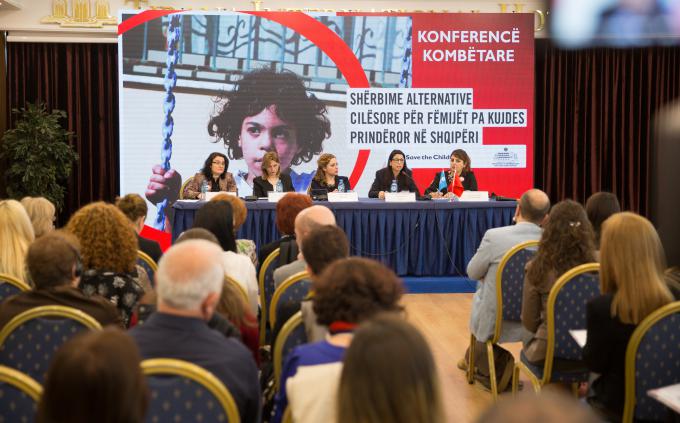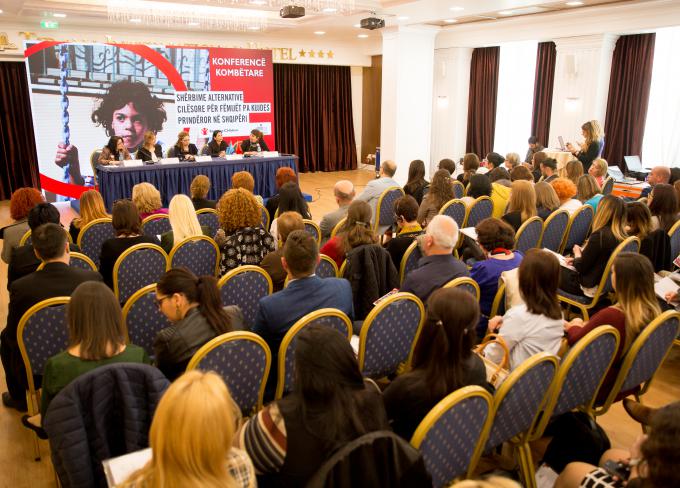Family-based care should prevail over Residential Care for Children
28.032017, Tirana. To bring special attention to the importance of prevention of children's institutionalization, deinstitutionalization and establishment of alternative care services for children, it was held, the National Conference "Qualitative Alternative services for children without parental care in Albania" organized by Save the Children in cooperation with the Ministry of Social Welfare and Youth.


Main participants in the conference were Olta Xhacka, Minister of Social Welfare and Youth, Voltana Ademi, Mayor of Shkodra Municipality, Antonela Scolamiero, UNICEF Representative in Albania, Jumanah Zabaneh, Save the Children MEE Representative, Anila Meco, Country Director of Save the Children in Albania, head of central and local governing institutions and social service experts and specialists, who provide these services for children and their families.
In Albania, the total number of children living in residential centers is 846, out of whom 285 are children with disabilities and 561 are other children. Most of the children living in these centers come from families with economic and social problems.
Studies undertaken in the last decade in the region and Albania, on the effects of institutionalization of children, evidence that all children who grow out of their family care are at high risk of physical, emotional and intellectual harm.
National Conference aimed to bring to the attention of all central institutions and local service providers and civil society organizations on:
Necessity of concrete plans that guarantee the right of children to live in a family, in his biological family or a substitute foster/adoptive family. Immediate needed alternative qualitative services for children without parental care giving due priority, as long as hundreds of children are out of a family safe and protected environment and at high risk of becoming subject to violence and abuse.
The conference intends to constitute a moment of reflection on the actualization of priorities and policies into concrete plans highlighting challenges and offering real solutions as well as strengthening cooperation and partnership between central and local level.
All the recommendations and conclusions of the conference, which will emerge from the working groups, composed of professionals and service providers, will serve to influence and feed policies and national action plans on child protection and childcare.
 Albania
Albania